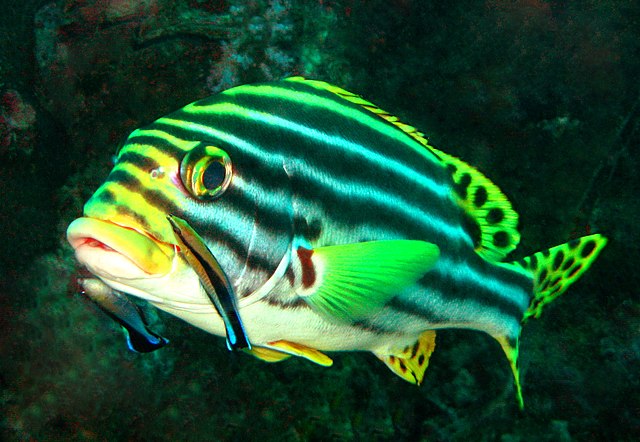
Thammasat University students are cordially invited to participate in a free Zoom public lecture about The Economics of Biodiversity.
The event will be held on Tuesday, 9 November starting at 6:30pm Bangkok time.
It is hosted by the Department of Economics, University of Oxford, the United Kingdom UK).
The Thammasat University Library collection includes many books about different aspects of the economics of biodiversity.
The speaker will be Associate Professor Alex Teytelboym, who teaches economics at the University of Oxford. Associate Professor Teytelboym’s main research interests are in market design (such as matching markets and auctions) and network economics. He is also interested in the applications of economic theory to many policy areas, including environment, energy, and refugee resettlement.
He is also co-founder of Refugees.AI, an organization developing new technology for refugee resettlement, funded by the Skoll Centre for Social Entrepreneurship, the University of Oxford.
Students are invited to register for the event at this link.
Biodiversity is a source of economic wealth for many regions of the world, such as many nature reserves, parks and forests, where wildlife and plants are sources of beauty for many people. Ecotourism is a growing outdoor recreational activity. Most species have yet to be evaluated for their current or future economic importance.
There have been a number of economic arguments advanced regarding evaluating the benefits of biodiversity.
An official UK government research report by Professor Sir Partha Dasgupta was discussed earlier this year on the website of the International Monetary Fund (IMF).
The IMF website noted:
Is nature external to the human economy as most of our models assume? Professor Sir Partha Dasgupta, leader of the independent Review on the Economics of Biodiversity commissioned by the UK Treasury, answers with a resounding ‘No’. Join the Managing Director and Prof. Dasgupta to learn about an economic framework that fully accounts for natural assets, and the goods and services they provide. A framework that treats biodiversity loss as an asset management problem and uses the language of economics and finance to describe how we can jointly protect and enhance biodiversity and support our prosperity and wellbeing now, and in the future.
The Dasgupta Review addresses important macroeconomic issues relevant to the IMF’s mandate. It directly considers the macroeconomic risks posed by biodiversity loss, drawing on new modelling that assesses the potential macroeconomic impacts of ecosystem tipping points and regime shifts. It puts climate policy discussions in a broader context and emphasizes nature-based solutions as a tool for mitigating and adapting to climate change. The Review also sets out high level policy options for humanity to make its engagements with nature sustainable. For example, it discusses the need for transformational changes within the global financial system, including the need to measure and manage financial risks stemming from nature and redirect financial flows towards enhancing natural assets and their sustainable use.

Professor Sir Partha Dasgupta is a Professor of Economics at the University of Cambridge. His research interests have covered welfare and development economics, the economics of technological change, population, environmental and resource economics, the theory of games, the economics of undernutrition, and the economics of social capital. Last year he was commissioned by the UK Treasury to lead a global independent review on the economics of biodiversity.
The report begins as follows:
Our economies, livelihoods and well-being all depend on our most precious asset: Nature.
We are part of Nature, not separate from it. We rely on Nature to provide us with food, water and shelter; regulate our climate and disease; maintain nutrient cycles and oxygen production; and provide us with spiritual fulfilment and opportunities for recreation and recuperation, which can enhance our health and well-being. We also use the planet as a sink for our waste products, such as carbon dioxide, plastics and other forms of waste, including pollution.
Nature is therefore an asset, just as produced capital (roads, buildings and factories) and human capital (health, knowledge and skills) are assets. Like education and health, however, Nature is more than an economic good: many value its very existence and recognise its intrinsic worth too.
Biodiversity enables Nature to be productive, resilient and adaptable. Just as diversity within a portfolio of financial assets reduces risk and uncertainty, so diversity within a portfolio of natural assets increases Nature’s resilience to shocks, reducing the risks to Nature’s services. Reduce biodiversity, and Nature and humanity suffer.
We have collectively failed to engage with Nature sustainably, to the extent that our demands far exceed its capacity to supply us with the goods and services we all rely on.
We are all asset managers. Individuals, businesses, governments and international organisations all manage assets through our spending and investment decisions.
Collectively, however, we have failed to manage our global portfolio of assets sustainably.
Estimates show that between 1992 and 2014, produced capital per person doubled, and human capital per person increased by about 13% globally; but the stock of natural capital per person declined by nearly 40%. Accumulating produced and human capital at the expense of natural capital is what economic growth and development has come to mean for many people.
In other words, while humanity has prospered immensely in recent decades, the ways in which we have achieved such prosperity means that it has come at a devastating cost to Nature.
Estimates of our total impact on Nature suggest that we would require 1.6 Earths to maintain the world’s current living standards.
The Review calls the imbalance between our demands and Nature’s supply the ‘Impact
Inequality’. Those demands are affected by the size and composition of our individual demands, the size of the human population, and the efficiency with which we both convert Nature’s services to meet our demands and return our waste back into Nature. Nature’s supply is affected by the ‘stock’ of natural assets and its ability to regenerate. Our unsustainable engagement with Nature is endangering the prosperity of current and future generations. Biodiversity is declining faster than at any time in human history. Current extinction rates, for example, are around 100 to 1,000 times higher than the baseline rate, and they are increasing. Such declines are undermining Nature’s productivity, resilience and adaptability, and are in turn fuelling extreme risk and uncertainty for our economies and well-being. The devastating impacts of COVID-19 and other emerging infectious diseases – of which land-use change and species exploitation are major drivers – could prove to be just the tip of the iceberg if we continue on our current path.
Many ecosystems, from tropical forests to coral reefs, have already been degraded beyond repair, or are at imminent risk of ‘tipping points’. These tipping points could have catastrophic consequences for our economies and well-being; and it is costly and difficult, if not impossible, to coax an ecosystem back to health once it has tipped into a new state. Low income countries, whose economies are more reliant than high income countries on Nature’s goods and services from within their own borders, stand to lose the most.
Reversing these trends requires action now. To do so would be significantly less costly than delay, and would help us to achieve wider societal goals, including addressing climate change (itself a major driver of biodiversity loss) and alleviating poverty.
At the heart of the problem lies deep-rooted, widespread institutional failure…

(All images courtesy of Wikimedia Commons)
